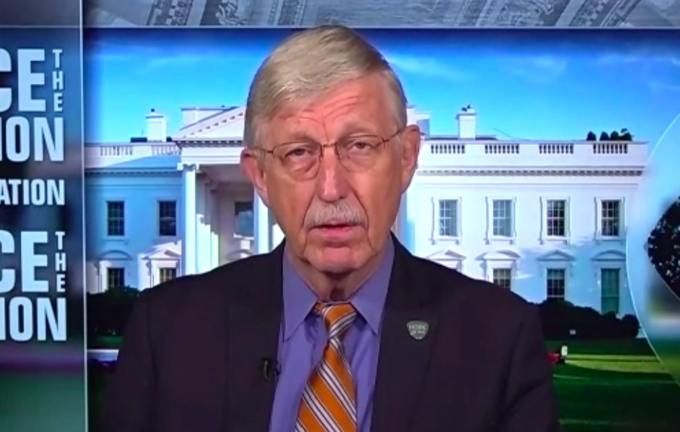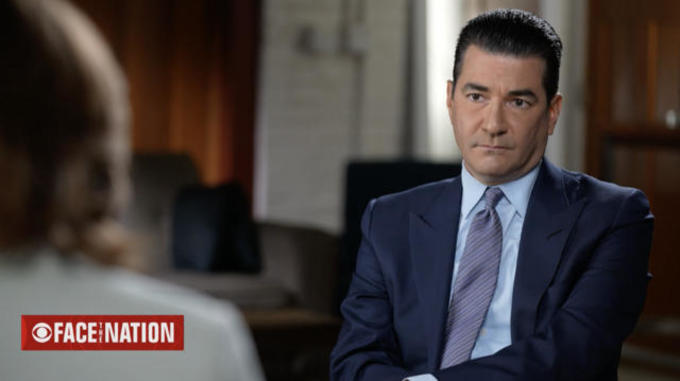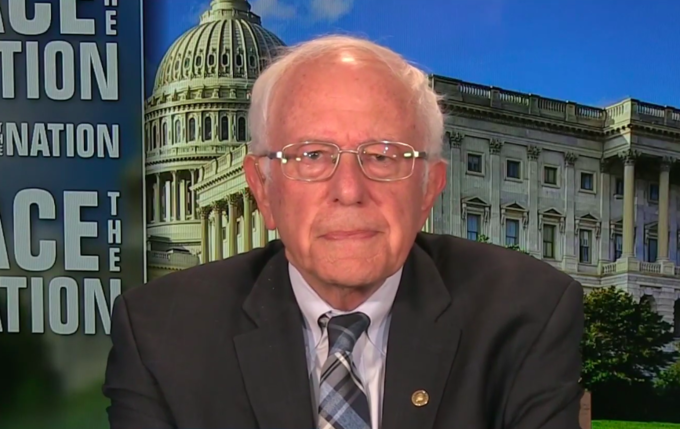| "There were fundamental weaknesses with our [COVID-19] response that regardless of who is in power, we had an ill-prepared bureaucracy." - Dr. Scott Gottlieb on whether the outcome of the pandemic would have been different if President Trump wasn't in office. Watch his extended interview with Margaret: part 1 and part 2.
Welcome to the "Face the Nation" Five at Five newsletter. Scroll down for your five takeaways from today's broadcast of "Face the Nation with Margaret Brennan" on CBS. Did someone forward you this? Sign-up at cbsnews.com/email. 1. Collins expects FDA to expand COVID-19 booster recommendation in "coming weeks"  Dr. Francis Collins, head of the National Institutes of Health (NIH), predicted Sunday that the Food and Drug Administration (FDA) will widen its recommendation on who should receive a COVID-19 booster shot in the "coming weeks" after the agency recommended the additional doses for the elderly and high-risk Americans. In an interview with "Face the Nation," Collins said it was "very significant" that an FDA advisory committee unanimously voted in favor of offering the extra vaccine doses to people 65 and older, as well as to those who are at high-risk for exposure, but the panel wasn't convinced the boosters were needed for the general public. What Collins said : "We have to see how this plays out over the coming weeks because the data changes every day. I do think it was very significant that the FDA Advisory Committee voted unanimously in favor of offering boosters to people 65 and over and to others who have high risk exposures like health care professionals. So we're starting down that path. They weren't convinced yet that the data required this for younger individuals who aren't at high risk. But I think some of the data we're seeing coming in, especially from Israel, tells me that it's likely that they will get to that point. But this was a start. The place that might still be somewhat questionable would be the very youngest individuals is the benefit risk needed there. But certainly, I think there will be a decision in the coming weeks to extend boosters beyond the list that they approved on Friday." Why it matters : Top federal health officials announced last month that vaccinated Americans would need to get booster shots eight months after receiving their second dose of a COVID-19 vaccine, and the Biden administration was prepared to begin offering boosters this week subject to their approval from the FDA and Centers for Disease Control and Prevention (CDC). But the FDA panel of outside experts on Friday rejected a request from Pfizer for full approval of a third dose of its vaccine. The advisers did, however, endorse the additional shots for older and high-risk Americans, such as health care and frontline workers, such as teachers. 2. COVID-19 surge continues as FDA recommends booster for limited group  The FDA on Friday recommended COVID-19 boosters only for vaccinated seniors and high-risk patients, a potential roadblock for the Biden administration's plan to combat new cases. Nearly 10,000 people died last week from the virus. Children comprise nearly 29% of all new cases. CBS News' Mark Strassmann reports that across the country hospitals are seeing early retirements, resignations and many sick days as staff burn out from handling the COVID-19 surges. 3. Gottlieb says COVID-19 origins may never be known, urges more intelligence gathering to detect future pandemics  Dr. Scott Gottlieb, who served as Food and Drug Administration Commissioner in the Trump administration, says that without more information from China, the world may never have an answer to how the coronavirus pandemic emerged. What Gottlieb said: "Either we find the intermediate host -- the animal that spread COVID -- or there's a whistleblower inside China. Or someone close to this, who knows that this came out of a lab, comes forward, defects, goes overseas, or we intercept some communication that we shouldn't have had access to. Absent something like that, we're not going to be able to answer this question. This is going to be a battle of competing narratives." Why it matters: In May, President Biden ordered U.S. intelligence agencies to conduct a 90-day investigation into the origins of the virus after the agencies "coalesced around two likely scenarios" but had not reached a conclusion. Intelligence officials have said that since 2020, agencies were weighing the possibility that the virus emerged naturally, through human contact with an infected animal and was the result of a lab accident. They ruled out early on that the virus had been man-made. 4. Sanders says Democrats are "going to come together" on reconciliation bill  Senator Bernie Sanders of Vermont, the chairman of the Senate Budget Committee, predicted Sunday that Democrats will "come together" to pass the $3.5 trillion social spending package under consideration in Congress, even as two key Senate Democrats remain steadfast in their opposition to the plan's cost. What Sanders said: "We dealt with this with the American Rescue Plan, which, as you know, is the most significant piece of legislation to take us out of the economic decline. And it cut childhood poverty by 50%. It provided unemployment benefits. It did what had to be done to get us out of the emergency. We came together. I expect, because of the pressure of the American people, we're going to come together again and do what has to be done." Why it matters: Democratic-led House committees completed work last week in crafting their respective portions of the massive $3.5 trillion package, which includes President Biden's plans for universal pre-K, expanding Medicare, child and elder care, and the environment. But while the president has expressed confidence Congress will send the measure to his desk, Senators Joe Manchin of West Virginia and Kyrsten Sinema of Arizona have pushed back at the legislation's price tag, warning they are unwilling to support a bill of that size. 5. Botched drone strike shows limits of U.S. reach in Afghanistan  A U.S. drone strike launched in Afghanistan late last month killed as many as 10 civilians, and not an ISIS-K terrorist as the U.S. military previously reported, the Pentagon acknowledged Friday. CBS News senior national security correspondent David Martin says the deadly strike was a "horrendous mistake." | 
No comments:
Post a Comment